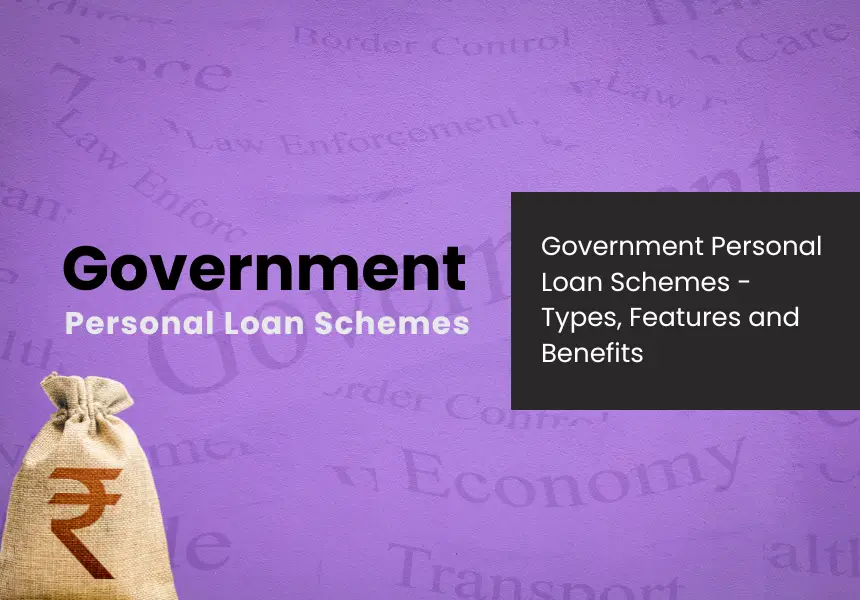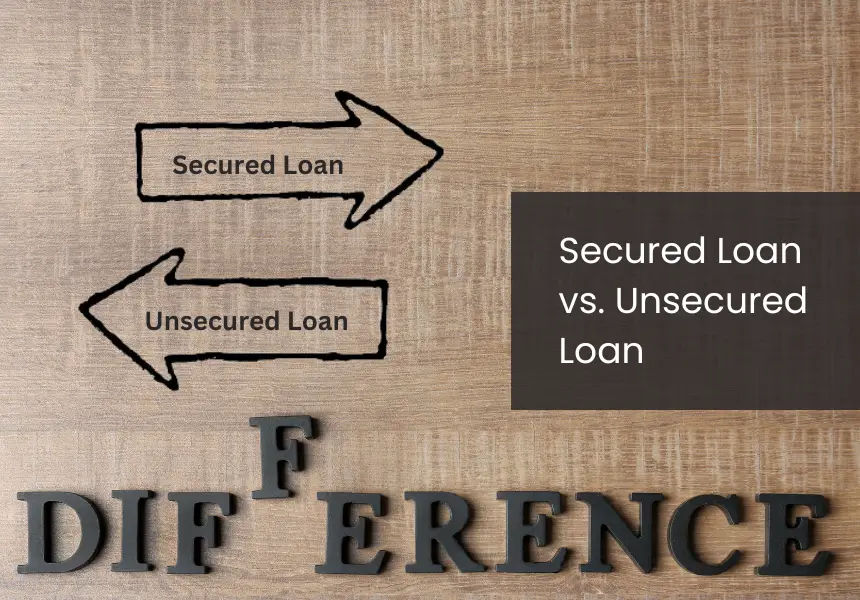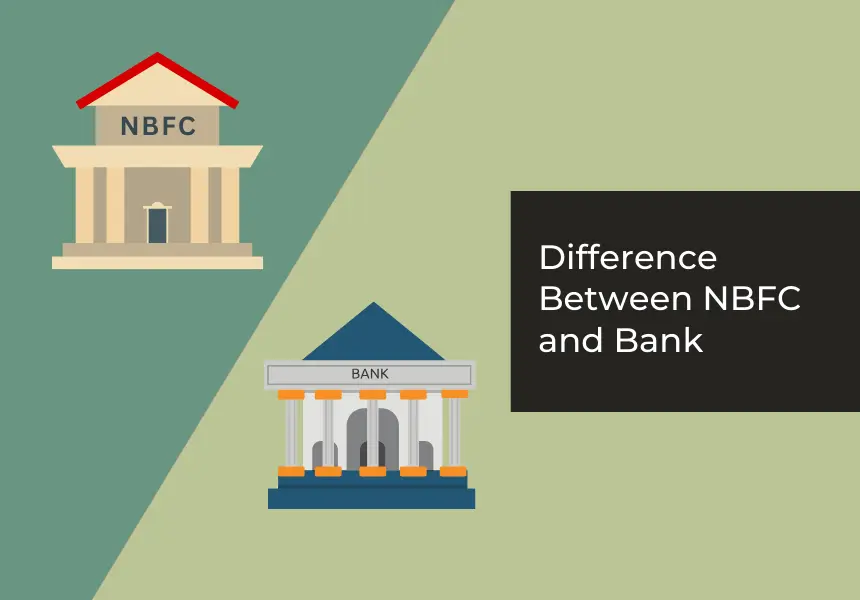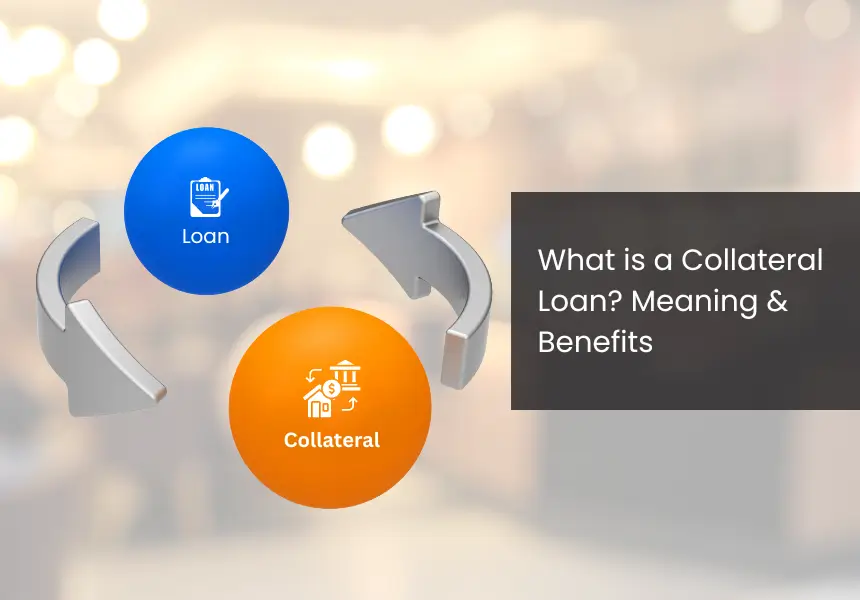
If you need a personal loan with low interest rates and flexible terms, Government personal loan schemes are a good option. These schemes are backed by the government, ensuring safer and affordable access to finances for individuals. These schemes can be used for various personal financial needs, from medical emergencies to education which makes borrowing accessible and stress-free.
What is a Government Personal Loan Scheme?
A government personal loan scheme is a financial initiative introduced by central or state governments to provide individuals with access to loans for various needs, such as personal expenses, education, or emergencies. These schemes are designed to empower individuals rather than generate profit.
As a result, they usually offer lower interest rates and flexible repayment terms compared to loans offered by private lenders. This makes them an attractive option for those looking for affordable financing.
Features and Benefits of Government Personal Loan Schemes
Government personal loan schemes help people get financial support easily and affordably. Below are some features and benefits of these loans:
1. Low interest rates
Government loans usually come with lower interest rates compared to loans from banks or NBFCs. This makes borrowing more affordable and reduces the financial burden on individuals.
2. Flexible repayment terms
Government loan schemes usually offer longer repayment periods, allowing borrowers to spread out their monthly EMIs over a longer duration to make them more manageable. This flexibility helps individuals plan their finances more efficiently, reducing the risk of default.
3. Support for everyone
Government loan schemes are meant to help people who may not be able to get loans from banks or NBFCs. They focus on helping those from lower-income groups or who struggle financially.
4. No collateral requirement
In most cases, government personal loan schemes do not require collateral, making them more accessible.
5. Accessible for individuals without a credit history
Another advantage is that these schemes are also available to those without an established credit history. This makes it easier for first-time borrowers or individuals who haven’t used credit before to access loans, thereby promoting credit inclusion.
Eligibility Criteria To Apply For A Personal Loan Scheme By Government
When applying for a personal loan under a government scheme, the eligibility criteria may vary based on the specific program’s goals, target audience, and loan limits. However, certain general conditions are often required across different schemes.
- You must be a citizen of India.
- You must have a steady source of income to demonstrate your ability to repay the loan. This applies to salaried individuals, self-employed professionals, or business owners.
- While some government schemes may not strictly require a high credit score, maintaining a good credit history is important.
- You must provide valid ID documents such as an Aadhaar card, PAN card and Voter ID.
- Depending on the government scheme, there may be some additional criteria that may depend on your employment status, age, or sector.
Documents Required To Apply For A Personal Loan Scheme By Government
When applying for a personal loan scheme from the government, there are some documents that are necessary to establish your identity, address, and financial standing. The following documents are generally required:
- Identity proof – You must submit your Aadhaar card, PAN card, Voter ID, or driving license to provide proof of identity.
- Address proof – To verify your residential address, you may need to provide utility bills (like electricity or water), a rent agreement, or any other government-recognized address proof.
- Income proof – To assess your financial stability, you will have to provide salary slips, recent bank statements, or income tax returns.
Different Types Of Government Loan Schemes
The Government of India offers various loan schemes to meet the financial needs of its citizens across different sectors. These loans allow individuals, students, entrepreneurs, and farmers to access funds with favorable terms. Below are the different types of government loan schemes:
1. Personal loans
Government personal loan schemes are often unsecured, meaning the borrowers do not need to pledge collateral. These loans can be used for various purposes, such as managing medical emergencies, home renovations, or travel expenses. Such loans offer flexible repayment terms and make funds accessible to individuals who do not want to keep significant assets as a security.
2. Student loans
Student loans under government schemes support students pursuing higher education, vocational training, or skills development. These loans cover tuition fees, study materials, and living expenses. The government also offers subsidized interest rates or repayment grace periods to ease the financial burden on students during their studies. Programs like the Central Sector Interest Subsidy (CSIS) Scheme ensure that students from economically weaker sections have better access to education.
3. Housing loans
Government housing loan schemes, such as the Pradhan Mantri Awas Yojana (PMAY), aim to make home ownership affordable. These schemes offer subsidies on interest rates for home loans, making it easier for individuals to buy or build homes. These loans promote affordable housing, particularly for economically weaker sections and lower-income groups, ensuring that more citizens can achieve the dream of owning a house.
4. Business loans
Small and Medium-Sized Enterprises (SMEs) contribute significantly to India’s economy. Government business loan schemes like Mudra loans under the Pradhan Mantri Mudra Yojana (PMMY) provide financial assistance to entrepreneurs, startups, and small business owners for their working capital and expansion needs. These loans are essential for fostering entrepreneurship and enhancing economic growth in the country.
5. Agricultural loans
Agriculture remains an essential sector in India, and many government schemes aim to support farmers with short and long-term credit options. For instance, the Kisan Credit Card (KCC) scheme is a significant initiative that provides short-term loans to farmers to cover costs related to crop cultivation, the purchase of seeds, fertilizers, equipment, and even livestock. Agricultural loans often come with lower interest rates and flexible repayment schedules to ease the financial burden on farmers, ensuring the sustainability of agricultural activities.
Interest Rates And Other Charges On Government Personal Loan Scheme
When applying for a personal loan through government schemes, it’s important to consider the costs involved. Here are some of the charges associated with government personal loan schemes:
1. Interest Rate
The interest rate is the most significant expense in any loan. Government personal loan schemes generally offer more favorable rates compared to regular personal loans. These rates are usually lower, depending on the scheme, compared to other personal loans, which may have rates as high as 44% p.a.
2. Processing fee
Government personal loans may charge a processing fee to cover the administrative work required to process the loan application. This fee is generally lower than what private lenders charge, making it an added advantage for borrowers.
3. Prepayment charges
Prepaying part of your loan or paying off the balance before the end of the loan term can sometimes result in additional fees. Government loan schemes might charge a foreclosure fee, although in many cases, these charges are lower compared to private loans.
4. Penalty fee
If you miss an EMI payment, late payment charges may apply. The delayed payments on government schemes is usually more lenient, but it must be avoided as it can increase the overall cost of your loan.
Conclusion
Government personal loan schemes offer a reliable and affordable way to meet personal financial needs, with lower interest rates, flexible terms, and added security as the government offers them.
However, if you’re looking for a quick, hassle-free personal loan with customized options, LoanTap, an RBI-registered NBFC, can be a great alternative. Loantap’s personal loans are versatile and offer competitive interest rates with a seamless online loan application.
Frequently Asked Questions
Can women apply for Government Personal Loan Schemes?
Yes, several government loan schemes are specifically designed to support women entrepreneurs and professionals. For example, the Stand-Up India scheme offers loans to women to start or expand businesses.
Are there any fees or charges associated with these loans?
While government personal loan schemes typically have minimal fees, depending on the scheme and the lending institution, you may still need to pay processing fees or other charges like late penalty, prepayment fee, etc.
How can I apply for a Government Personal Loan Scheme?
You can apply for a government personal loan scheme either online or offline. Visit the official website of the specific scheme or approach authorized banks or financial institutions that facilitate these loans.
What is the processing time for Government Personal Loan Schemes?
Processing times vary by scheme and bank. Generally, government loan schemes have simplified procedures, and once all required documents are submitted, the loan approval process can take anywhere from a few days to a few weeks.
Is there a moratorium period available under Government Personal Loan Schemes?
Some government schemes offer a moratorium or repayment holiday period, where borrowers are not required to make payments for a specific period after loan disbursement. For example, some educational loan schemes have a moratorium period during the course duration and an additional period post-graduation.








